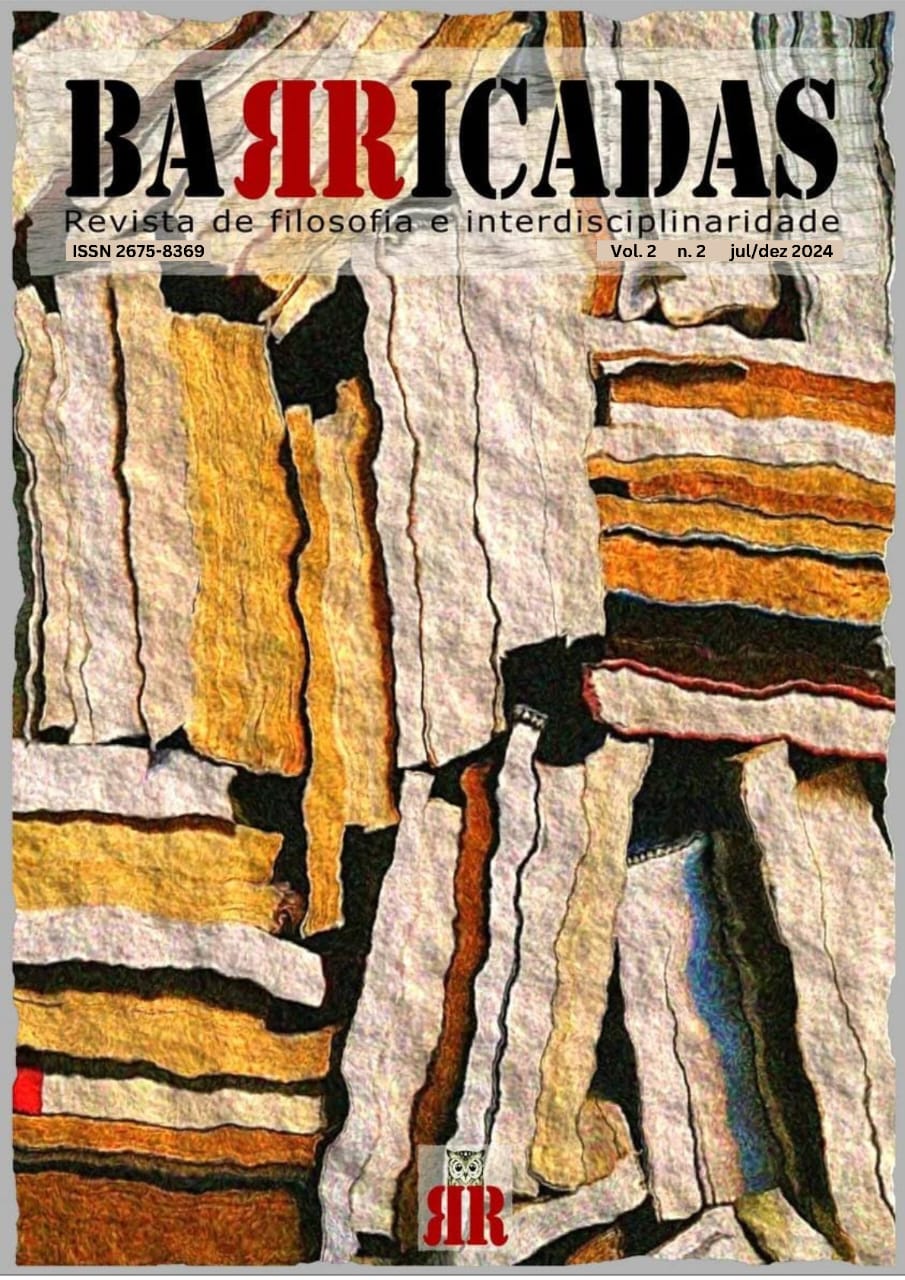L'absurde familial: Une analyse des processus de subjectivation à partir d'Albert Camus et de la psychanalyse freudienne
DOI :
https://doi.org/10.18764/2675-8369v2n2.2024.6Mots-clés :
Albert Camus, Processus de subjectivation, Théorie de l'absurdeRésumé
Résumé: L'article vise à discuter de la philosophie d'Albert Camus et de la psychanalyse freudienne. La théorie de l'absurdité de Camus est une lentille à utiliser pour lire les comportements culturels contemporains. À ce stade, il est clair que ce que le philosophe décrit comme une condition anormale de la vie humaine a pris une place de stabilité dans le champ psychosocial quotidien. Albert Camus, nous lègue la vision du bonheur basée sur la liberté, en plus de la physique, des corps. Une liberté transcendante dans laquelle le temps du choix et du jugement peut être atteint. La société contemporaine, avec ses affects morbides et liquides, offre une liberté « absurde », qui prive l'homme du caractère de chef d'orchestre de sa propre vie. Son problème de révolte demeure de manière camouflée, c'est-à-dire que l'homme révolté cède la place à l'homme conformé, sans perdre la volatilité du désir-révolte fondé sur la théorie mythique de Sisyphe et son effort éternel et inutile.
Mots clés: Albert Camus. Philosophie. Psychanalyse
Téléchargements

Téléchargements
Publié-e
Comment citer
Numéro
Rubrique
Licence
(c) Tous droits réservés Marcos Ferreira Campos 2024

Cette œuvre est sous licence Creative Commons Attribution 4.0 International.
Autores/as que publicam nesta revista concordam com os seguintes termos:
1) Autores/as mantêm os direitos autorais e concedem à revista o direito de primeira publicação, com o trabalho simultaneamente licenciado sob a Licença Creative Commons Attribution que permite o compartilhamento do trabalho com reconhecimento da autoria e publicação inicial nesta revista;
2) Os/As autores/as não serão remunerados pela publicação de trabalhos na revista;
3) Além disso, os conteúdos publicados são de inteira e exclusiva responsabilidade dos/as autores/as, ainda que reservado aos editores o direito de proceder a ajustes textuais e de adequação às normas da publicação;
4) Autores/as têm permissão e são estimulados a divulgar seu trabalho online (ex.: em repositórios institucionais ou na sua página pessoal), já que isso pode gerar alterações produtivas, bem como aumentar o impacto e a citação do trabalho publicado (Veja O Efeito do Acesso Livre).
Direitos autorais 2020 Barricadas: Revista de Filosofia e Interdisciplinaridade.

Este obra está licenciado com uma Licença Creative Commons 4.0 Internacional.



